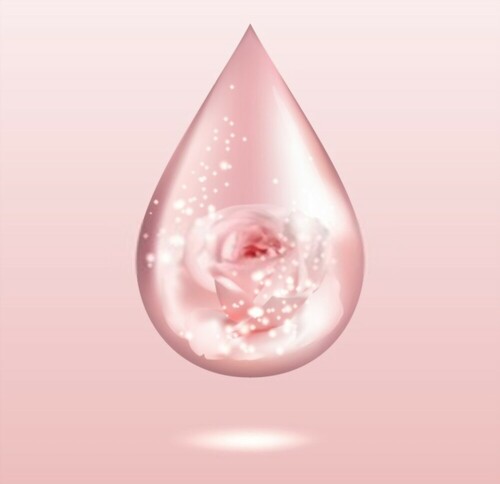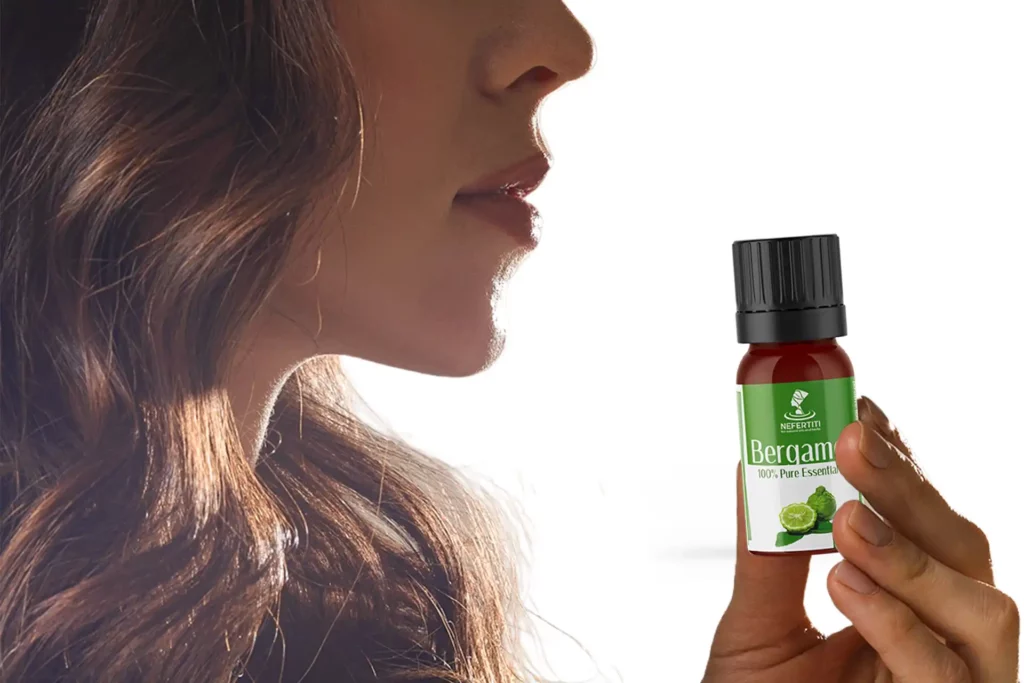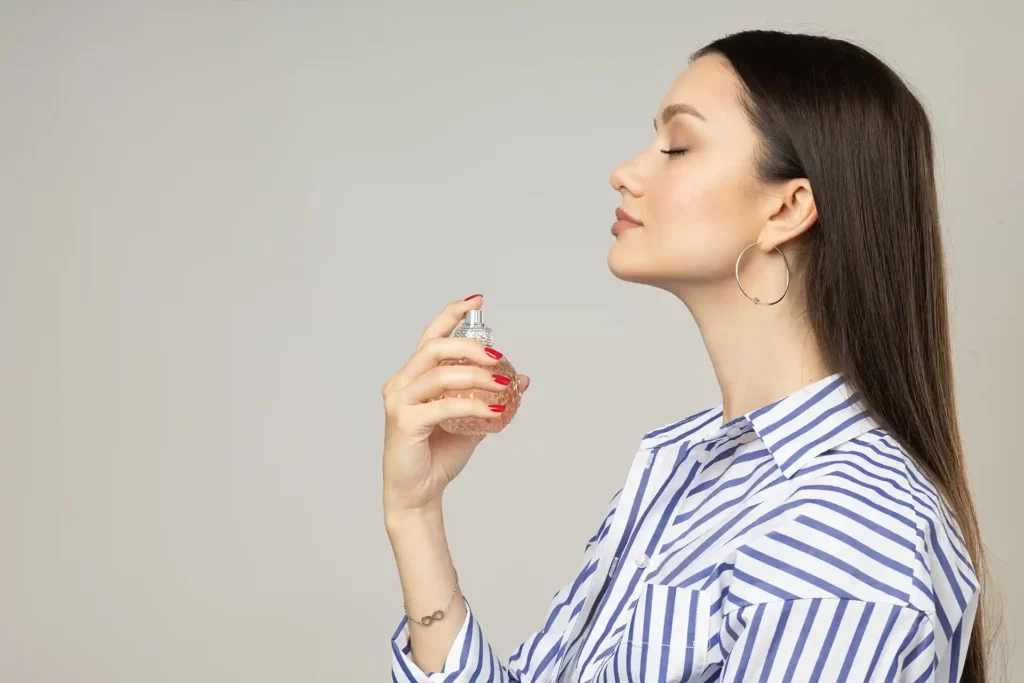ROSE OIL PRODUCT DESCRIPTION
The rose, also known as Queen of the Garden and the flower of heaven has been used since ancient times for its therapeutic properties. The oldest records we have show that they were known to man over 5000 years ago, and fossils prove that they have existed for more than 40 million years.
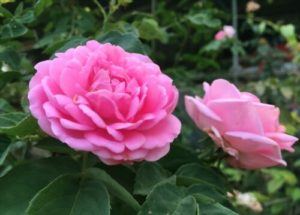 After becoming popular for their beauty as a garden plant and cut flower, new hybrids were created to obtain the most beautiful flower, but this resulted in the loss of fragrance, so further hybrids were then created when there was a resurgence in demand for scented flowers, and scents such as tea, vanilla, fruity and musk were introduced. Whilst these new hybrids may have the perfect flower and designer scents, the therapeutic properties have been lost. As such, rosa damascena, commonly known as Damask Rose, has become one of the most important species since it is an “old rose” depicting the original iconic rose scent – sweet, fruity, spicy, romantic and intoxicating – and, most crucial of all, retaining all of the key therapeutic properties. It is this scent which is the basis for rose essential aroma oil, rose water and rose flavourings.
After becoming popular for their beauty as a garden plant and cut flower, new hybrids were created to obtain the most beautiful flower, but this resulted in the loss of fragrance, so further hybrids were then created when there was a resurgence in demand for scented flowers, and scents such as tea, vanilla, fruity and musk were introduced. Whilst these new hybrids may have the perfect flower and designer scents, the therapeutic properties have been lost. As such, rosa damascena, commonly known as Damask Rose, has become one of the most important species since it is an “old rose” depicting the original iconic rose scent – sweet, fruity, spicy, romantic and intoxicating – and, most crucial of all, retaining all of the key therapeutic properties. It is this scent which is the basis for rose essential aroma oil, rose water and rose flavourings.
Extraction of oil and rose water from the damask rose can be traced back to the 7th century in Persia, using a single distillation process, which yielded minuscule amounts of oil. A double distillation process began in the 17h century producing high quality oil but still in small amounts. The low yield (an approximate ratio of 1:3000), the labour intensive harvesting, and the lack of a credible synthetic substitute makes rose oil a very expensive commodity, hence its nickname of “liquid gold” and “queen of all oils”.
The therapeutic properties of rose oil are well documented, included in writings by the Roman naturalist Pliny the Elder (23-79 AD), the Greek physician and botanist Dioscorides (40-90 AD), the Chinese philosopher Confucius (551-479 BC), plus its usage within traditional Indian Ayurvedic practices. It was used for strengthening the heart, reducing inflammation, and the relief of chest and abdominal pain, menstrual discomfort, and digestive problems. Today its healing powers are utilised for these same ailments, plus a whole lot more.
HOW TO USE ROSE OIL
The therapeutic properties of natural rose oil can be administered by way of a diffuser, vaporiser, topical application, or as a massage.
ROSE OIL USES AND BENEFITS
 Rose Oil Diffuser Benefits:
Rose Oil Diffuser Benefits:
- Rose oil is a natural antidepressant and a powerful mood booster. It eliminates stress, nerves and mental fatigue, calms, soothes, and balances the emotions, promotes self-confidence, and boosts self-esteem. Rose oil effectively decreases the level of the stress hormone cortisol in the blood and stimulates the release of a chemical called dopamine which is believed to be pivotal in reducing the symptoms of depression.
- In addition to bringing equilibrium to the emotions, rose oil is also able to help tin stabilising the hormones, and research has indicated that it may be able to play a vital role in addressing the effects of the menopause, helping to alleviate some of the symptoms including mood swings, anxiety, night sweats, hot flushes, low libido and pain.
- Rose oil is a potent aid to reduce sexual impairment including frigidity and erectile dysfunction. The invigorating scent, plus its ability to reduce anxiety, increase blood circulation and balance hormones is a powerful combination and studies showed that it increased sexual satisfaction and desire, as well as significantly improved sexual function in women undergoing the menopause.
- Research indicates that rose oil stimulates the brain to release endorphins, known as “feel-good” hormones, that can help with pain. In tests with postoperative children, all participants inhaling rose oil reported a significant decrease in pain.
- Studies have shown that inhaling rose oil during childbirth is extremely beneficial, helping to allay anxiety and even reducing pain.
 Rose Oil Topical Application Benefits:
Rose Oil Topical Application Benefits:
- Rose oil with its antibacterial and anti-inflammatory properties, and important components including essential nutrients, vitamins and antioxidants make it an invaluable aid to skincare. It relieves redness, inflammation, skin irritation, skin conditions such as eczema, rosacea and psoriasis, clears acne, rehydrates dry skin, and smooths mature skin and diminishes fine lines and wrinkles. Suitable for all skin types, including sensitive, rose oil helps to control excess oil, and maintains the skin’s natural pH balance. It also enhances blood circulation, increases the skin’s permeability, strengthens and stimulates skin cells, promotes collagen production, stimulates skin regeneration in the case of damaged skin, helps to diminish dark circles under the eyes, and adds a healthy glow to the skin. An effective cleanser and astringent, rose oil removes excess oil and dirt, and subsequently clears blocked pores and tonies the skin. A study confirmed that a 0.25% diluted oil destroyed the acne causing bacteria “propionibacterium acnes” within just 5 minutes, and proclaimed rose oil to be one of the most potent antibacterial essential oils.
- The antibacterial, antifungal, wound accelerating and skin regenerating properties of rose oil will heal skin afflictions such as cuts and scratches, eliminate fungal infections such as athlete’s foot and nail fungi, and reduce the appearance of scars and stretch marks.
- When mixed with a carrier oil and applied to the scalp, rose oil can help to alleviate any scalp dryness, oiliness or infection. Gentle massage to the scalp during application will also increase blood circulation, nourish the hair follicles, and unblock hair follicles which could otherwise lead to hair fall or loss. For best results, use once a week as a hair mask, plus add a few drops into everyday hair products to fully utilise the benefits daily.
 Rose Oil Massage Benefits:
Rose Oil Massage Benefits:
- As a powerful anti-inflammatory and natural analgesic, combined with its ability to boost blood circulation, rose oil can help to relieve the pain and swelling of conditions such as rheumatism, arthritis, gout, and to soothe stiff and sore muscles. Furthermore, this oil also stimulates the release of endorphins, known as “feel good” hormones which can further help to reduce pain.
- Since rose oil is rapidly absorbed into the skin and its therapeutic benefits subsequently released and carried throughout the body, it is highly recommended in the case of severe depression to utilise the benefits through an aromatherapy massage rather than inhalation. Can also counteract postnatal depression.
- Studies have shown that massaging rose oil into the abdomen can greatly relieve menstrual pain.
 Additional Rose Oil Applications:
Additional Rose Oil Applications:
- Add a few drops to your pillow or sheets to remove stress and anxiety and invoke calmness to induce a relaxing night’s sleep.
- Make a compress with a few drops of oil and apply to the forehead to relieve a headache or migraine.
- Mix a few drops in a bath product and add to a warm bath to stimulate the “feel good” hormones, relieve depression, evoke calm, ease aching muscles, or relieve a headache or migraine.
PLANT DESCRIPTION
 Rose is the common name given to the species of the Rosaceae family, a thorny flowering shrub or vine. The basis of our essential aroma oil is rosa damascena which is a deciduous shrub, and grows up to 2 metres tall with an informal shape, and is covered in groups of pink to light red flowers. It is believed to be a natural hybrid of the varieties rosa gallica and rosa moschata which originated in the middle east. Today it is a cultivated variety, grown predominately for its precious oil, and is no longer found growing in the wild.
Rose is the common name given to the species of the Rosaceae family, a thorny flowering shrub or vine. The basis of our essential aroma oil is rosa damascena which is a deciduous shrub, and grows up to 2 metres tall with an informal shape, and is covered in groups of pink to light red flowers. It is believed to be a natural hybrid of the varieties rosa gallica and rosa moschata which originated in the middle east. Today it is a cultivated variety, grown predominately for its precious oil, and is no longer found growing in the wild.
BASIC PROPERTIES
Analgesic, anti-anxiety, anti-inflammatory, antibacterial, antidepressant, antifungal, antioxidant, antiseptic, antispasmodic, antiviral, aphrodisiac, cicatrizant (wound healing), depurative, emmenagogue.
SOURCING ROSE OIL
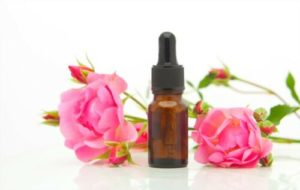 When searching for a natural oil or essential oil, it is always best to look for an oil which has been manufactured from start to finish with one souce, thus ensuring its integrity. All natural oils should be collaborated with certification.
When searching for a natural oil or essential oil, it is always best to look for an oil which has been manufactured from start to finish with one souce, thus ensuring its integrity. All natural oils should be collaborated with certification.
If you would like to add rose oil to your oil collection, look no further than Nefertiti for natural oils and herbs.
Nefertiti uses best practises, natural fertilisers only, and their unique experience, to produce the best plants for their exclusive use, from their own farm in Al Fayoum, one of the richest agricultural regions in Egypt. The oils are extracted in their own factory, using the environmentally friendly fashion of modern cold press technology or steam distillation, using no other solvents, and ensuring a constant supply of optimum high quality oils.
All natural oils produced using the cold press method are done under the control of the Egyptian State and the Egyptian Ministry of Health. In recognition of their never-ending strive for quality, all of the products are certified. Certifications obtained include: COA certificates and ISO awards in Quality Management System, Environmental management system, Occupational Health & Safety, Food Safety Management System, to name just a few.
OILS THAT BLEND WELL WITH ROSE OIL
Rose blends well with bergamot, chamomile, frankincense, geranium, jasmine, lavender, lemon, orange, patchouli, sandalwood, ylang ylang.
CONTRAINDICATIONS
Rose oil should never be applied directly to the skin due to its high concentration and must be diluted with a carrier oil. Recommended ratio: 1 drop to 5ml oil.
Avoid use during pregnancy and breast-feeding.
